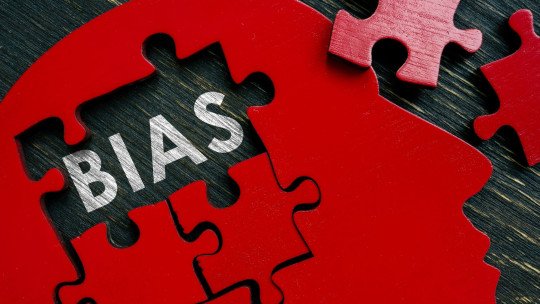The main obstacles or psychological blocks cause damage in all vital areas and, especially, in the decision-making process. They are unconscious, they generally act together and nourish each other, which, however, has the advantage that by overcoming one or more of them you can confront the others.
In this PsychologyOnline article we present psychological blocks in decision making that Rubin (1986) presents, specifically 17 blockages or obstacles, and we have changed the name of some of them a little to facilitate their understanding.
Loss of contact with one’s own feelings
It refers to the inability to feel and express feelings and emotions of love, joy, anger, sadness, fear. It is an unconscious process that begins at a very early age and evolves progressively as we get older. It usually arises in openly hostile and rejecting environments, which sabotage personal well-being and self-esteem.
It is often expressed through direct or indirect messages such as “Men don’t cry” or “Don’t laugh so loudly”, for example. “I don’t want, I don’t want // throw it in my hat” is a Margarita saying that reveals the difficulty of clearly expressing that we like something or that we long for it, that we say one thing but do another. Quite the opposite of “He who wants to kiss looks for the mouth”, which indicates that motivation impels us to do something.
In short, to the extent that we do not know or we don’t take our feelings seriously we sabotage our decision-making process because, although it is often rational, there is no doubt that affect plays an important role.
Avoidance of problems and anxiety so as not to experience suffering
The saying “Better evil known than good unknown” illustrates this psychological obstacle. People who suffer from it consider that options and choices, by offering a possibility of change, constitute a threatens the comfort of the familiar<
Any attempt to make a choice is likely to entail an enormous amount of anxiety, but as soon as decisions begin to be made, no matter how small, the person realizes that the terrible consequences they imagined have not occurred. Then, when he begins to participate more actively in his life – and not as a mere spectator – the commitment is no longer so threatening and the choices become more profitable and easier to make.
Lack of a scale of values
Alludes to lack of knowledge of things that are important or not, which affects what we value, how we use our time and energy, what our lifestyle is and what kind of people we can live and work with. Not knowing our values is as if we didn’t have them. By avoiding choice, the lack of values is strengthened, making choices increasingly difficult, thus creating a vicious circle. On the contrary, every time we make a decision we order the affairs of our lives according to a certain scale of values or priorities knowledge of one’s own personality is strengthened and subsequent choices are made easier.
Low self-esteem or lack of self-confidence
The difficulty choosing options – especially when you constantly jump from one alternative to another – is usually due to the unconscious conviction that no option you choose is good enough.

Hopelessness, depression and anxiety
The three are usually presented together, which is why Rubin calls them “travel companions.” Whatever their cause, identifying them is a priority, since they affect not only the ability to select alternatives but also affect mental health in general. Such problems are symptoms of deeper difficulties and often require professional help.
Idealization or unreal image of one’s own self
Many people with low self-esteem They draw an idealized image of themselves, which constitutes a form of compensation designed to disguise and counteract personal distrust. However, such an attitude only decreases self-confidence and hinders the decision-making process since ignoring and forgetting real qualities and, on the contrary, acting on the basis of non-existent qualities and talents, leads to erroneous choices because judgment is distorted.
Cancellation of one’s own self, dependence on others and obsessive need to please
Every time we give up making decisions we cancel our own self which in practice translates into the conflict avoidance or rejection, so as not to attract attention. This way of dealing with conflict situations greatly hinders the behavior of choosing, since the decisions made tend to avoid success and even favor failure, since this attracts less attention and causes less anxiety.
As for thedependent on others destroys the choice process since the same options as others are chosen or it is about others doing it for us.
Having an obsessive need to please others greatly affects the choice, because one’s own tastes are not satisfied; If a correct decision displeases others or is unpopular, the person discards it in favor of a less suitable one or refrains from choosing.

Obsessive search for recognition and first place
The excessive love for recognition It leads to making poor decisions that are often the antithesis of success and happiness. People with this block want to attract attention; They prefer to be admired rather than esteemed since their self-esteem is based on the abilities and skills they possess. Below the search for recognition, they have little self-esteem, which makes them feel obligated to protect it. Because they are afraid of failure and humiliation, they avoid making decisions that could jeopardize their pride.
Perfectionism and desire to have it all
It consists of the unconscious belief that there are situations and perfect decisions , which leads to delays due to the desire to make decisions under perfect conditions to be sure that the result will also be perfect. He fear of self-hatred As a consequence of obtaining an imperfect result, it exerts an inhibiting effect and produces inaction.
It is important to clarify that the search for excellence is not the same as the search for perfection, since the former has to adapt to realistic criteria; If not, it becomes the justification for perfectionist needs.
He desire to have it all It is the unconscious belief that you can reach a perfect state in which all options are included and, therefore, avoid decisions and sacrifices. This obstacle leads to more expenditure of money, time, energy and talent, and leads to failure. The saying “A bird in the hand is better than a hundred in the bush” exemplifies the most appropriate alternative behavior.
Hope for better things, longing for what you don’t have and contempt for what you do have.
The most characteristic of this obstacle are the endless delays and waiting , which destroys the possibility of choosing good options. The victims of this blockade are waiting for a magic solution that far surpasses all available alternatives. Permanently longing for what you don’t have and disregarding what is within reach can lead to marked inactivity, which means that decisions made – if they do not entail a true commitment – are rather superficial actions.
On the other hand, illusions force us to live in an imaginary world and have nothing to do with creative ideas that could be put into practice by making the right decisions. As the song says “He who lives on illusions dies of disappointments.”

Live in the imagination
Closely related to live on illusions and the hope of better things. The fact of living in the imagination is born from deep shortcomings and the need to obtain compensation. It is a blockage of reality that destroys the present and eliminates the joys of everyday existence, preventing success in any facet of life.
Fear of the self-hatred that may arise if the wrong decision is made
People who suffer from this blockage often show an obsessive need to always be right, which underlies a lack of self-confidence< At the slightest hint of failure – no matter how small – they severely self-deprecate< They are scared of decisions and find it impossible to make them for fear of making a mistake. This is due to the joint action of perfectionism, exaggerated hopes, the need for recognition and the cancellation of the self, which do not leave room for the acceptance of human limitations and the probable choice of wrong alternatives.
The victims of this blockade severe punishments are unconsciously inflicted in the form of depression, psychosomatic illnesses, accident proneness, multiple failures, destructive relationships, insomnia, appetite problems, and a whole variety of afflictions.
Self-reproach caused by excessive demands
This blockage arises from the requirements and the “internal contracts” that people unconsciously agree to with themselves. It takes the form of “should”, “could” and “would like”, used as reproaches or subsequent justifications for a specific behavior. For example: “I should be the smartest”, “I could have gotten the best grade”, “I would like to have won the contest”.
It hinders decisions, causing a state of paralysis and fear of breaking “contracts.” In addition, it can become a habit so difficult to eradicate that it causes making authentic decisions it turns out impossible to perform.
Blindness to various options
For there to be a decision making At least two options must be available, but the person with this block does not realize the alternatives available to him. At the base of this obstacle there is an idealization of the self and a fear of conflict, so options that conflict with this idealized image are not “seen” and any that cause disturbance and anxiety are rejected.
It usually occurs when the person is under strong pressure in periods of crisis and in situations of stress, which makes a provisional postponement necessary – until the pressure has reduced – which does not have to become a justification for endless delays.

Fear and time pressure distortion
The deceptive belief that there is no time is often used with negative consequences, as it can produce increased pressure and a fear reaction. It is one of the main obstacles in the decision-making process, since it prevents the use of the personal resources that are needed to choose an alternative.
When the person manages to free themselves from the burden of time, anxiety usually disappears and they can use time profitably to analyze and weigh the options, and to relax if necessary during the different phases of an election.
Wrong criteria
A correct criterion, that is, the ability to evaluate options rationally and profitable, is very important for successful decision making. On the contrary, erroneous judgment is often due to poor analysis and poor development of ideas. The emotional disorders despair, euphoria, stress, and severely disturbed mental states impair people’s judgment.
All the blocks discussed exert, to a greater or lesser extent, a detrimental effect on personal judgment, the influence of which is directly proportional to their intensity. The main component of the correct criterion is an objective vision of reality and of ourselves, without which our perception will be biased and distorted.
Lack of internal integration or serious disorganization
People can go through brief periods of emotional upheaval , during which it is not conducive to make elections. But, when such pronounced disorders occur that they involve intrusive thoughts, conflicting interests, absence of a strong sense of self, lack of a scale of values, etc. that prevent the integration or cohesion of all aspects of a situation, a treatment is required that can influence the development of a mature integrative force. This will allow the person to know who he is and what he really wants, establishing an order of priorities, before being in a position to make real decisions.
In summary, we stated in a previous article that for make an appropriate choice It is necessary, among other things, to collect, evaluate and analyze information about ourselves. Such information integrates not only the resources or potentialities but also the difficulties or limitations.
As we have seen, one of the difficulties that prevent decisions are psychological blocks or obstacles. Since it is almost impossible to fight an invisible or unknown enemy (as Rubin puts it) it is necessary – through self-exploration and self-analysis – know the blockages, identify them and understand them to act accordingly.
When faced with a decision-making situation, some questions we ask ourselves could serve as a guide to help us identify: what do I feel at this moment? How does it affect my comfort? What things are important to me? The options At my disposal are good enough? Do I feel uncontrollable anxiety? What are my real qualities? What would happen if, for example, my father did not like my choice? How will I feel if I make a mistake? Do I give more importance to what I should do than to what I want to do? Am I aware of the different alternatives available to me? Do I often think that I should hurry? Am I analyzing reality objectively?, among others.
If these questions are answered affirmatively, the person may realize that they are trapped in one(s) of the blocks, which is a first step in abandoning negative habits. Since awareness is not enough, you will then have to commit to a change that allows you to exercise more efficient decisional behavior.
However, when this is not enough (because the person is disorganized, when there are serious self-esteem problems, when there are disorders of feelings, thoughts and emotions, when more than a problem of indecision there is a problem of insecurity, etc.) it is required of the professional help that the counselor, psychologist, psychiatrist, or psychotherapist can provide, who can carry out the necessary interventions to correct the problem.
This article is merely informative, at PsychologyFor we do not have the power to make a diagnosis or recommend a treatment. We invite you to go to a psychologist to treat your particular case.
If you want to read more articles similar to Psychological blocks in decision making we recommend that you enter our Cognitive Psychology category.









